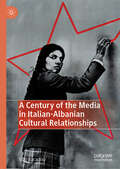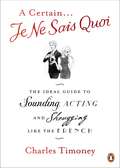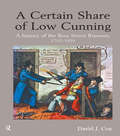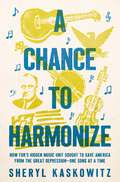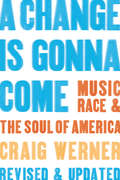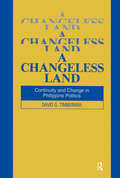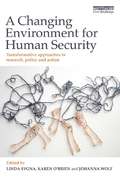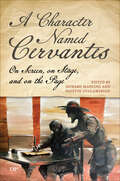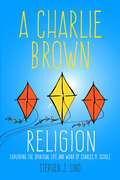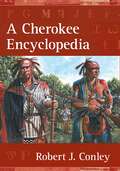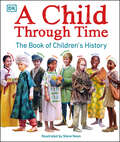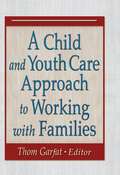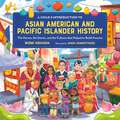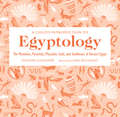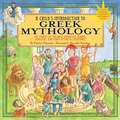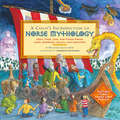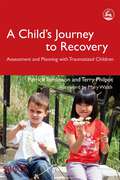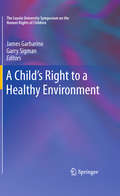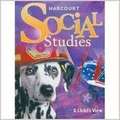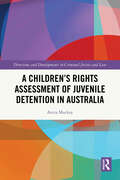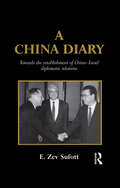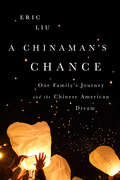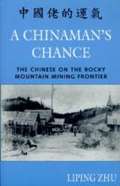- Table View
- List View
A Century of the Media in Italian-Albanian Cultural Relationships
by Vito SaracinoThis book delves into the complex historical, cultural, and educational ties between Italy and Albania within the realm of media studies, examining various mediums such as press, radio, television, cinema, and the web. Beginning in the late nineteenth century with the inception of the first Albanian-language newspapers in Italy, the analysis progresses to explore the evolving relationship between Albanians and radio, initially focusing on Italian broadcasts before transitioning to national channels. Rapidly, Italian radio becomes a tool for fascist soft power, facilitating fascist Italy's occupation of Albania in 1939. The second section delves into the communist propaganda apparatus, encompassing radio, television, cinema, and music. It offers a comprehensive exploration of television's evolution, from its tentative beginnings in the 1960s to the proliferation of private broadcasters in the post-communist era. Concluding with the emergence of the internet, the book highlights the significant decline of Italian soft power in Albania and the Southern Balkans over the past 15 years. Instead, these regions increasingly look towards the Anglo-Saxon and Turkish spheres as models, not only in media but also in terms of migration and development.
A Certain Je Ne Sais Quoi: The Ideal Guide to Sounding, Acting and Shrugging Like the French
by Charles TimoneyVocabulary alone isn't enough. To survive in the most sophisticated - and the most scathing - nation on Earth you will need to understand the many peculiarities of the (very peculiar) French culture. And for that you need A Certain Je Ne Sais Quoi.If you want to fit in with the French you'll have to know how to deal with sardonic waiters; why French children hate Charlemagne; the etiquette of kissing, joke-telling and drinking songs, what to do with a bidet, the correct recipe for a salade nicoise and, of course, how to convey absolute, shattering indifference with a single syllable (Bof!).Charles Timoney, the author of Pardon My French, provides a practical, pleasurable guide to the charms of the Gallic people - from their daily routines to their peerless gesticulations, from their come-ons to their put-downs. Read on and put the oh la la back into your French vacances. Your inner gaul will thank you for it.
A Certain Share of Low Cunning: A History of the Bow Street Runners, 1792-1839
by David J. CoxThis book provides an account and analysis of the history of the Bow Street Runners, precursors of today's police force. Through a detailed analysis of a wide range of both qualitative and quantitative research data, this book provides a fresh insight into their history, arguing that the use of Bow Street personnel in provincially instigated cases was much more common than has been assumed by many historians. It also demonstrates that the range of activities carried out by Bow Street personnel whilst employed on such cases was far more complex than can be gleaned from the majority of books and articles concerning early nineteenth-century provincial policing, which often do little more than touch on the role of Bow Street. By describing the various roles and activities of the Bow Street Principal Officers with specific regard to cases originating in the provinces it also places them firmly within the wider contexts of provincial law-enforcement and policing history. The book investigates the types of case in which the 'Runners' were involved, who employed them and why, how they operated, including their interaction with local law-enforcement bodies, and how they were perceived by those who utilized their services. It also discusses the legacy of the Principal Officers with regard to subsequent developments within policing. Bow Street Police Office and its personnel have long been regarded by many historians as little more than a discrete and often inconsequential footnote to the history of policing, leading to a partial and incomplete understanding of their work. This viewpoint is challenged in this book, which argues that in several ways the utilization of Principal Officers in provincially instigated cases paved the way for important subsequent developments in policing, especially with regard to detective practices. It is also the first work to provide a clear distinction between the Principal Officers and their less senior colleagues.
A Chance to Harmonize: How FDR's Hidden Music Unit Sought to Save America from the Great Depression—One Song at a Time
by Sheryl KaskowitzThe remarkable story of a hidden New Deal program that tried to change America and end the Great Depression using folk music, laying the groundwork for the folk revival and having a lasting impact on American culture.In 1934, the Great Depression had destroyed the US economy, leaving residents poverty-stricken. First Lady Eleanor Roosevelt urged President Roosevelt to take radical action to help those hit hardest—Appalachian miners and mill workers stranded after factories closed, city dwellers with no hope of getting work, farmers whose land had failed. They set up government homesteads in rural areas across the country, an experiment in cooperative living where people could start over. To boost morale and encourage the homesteaders to find community in their own traditions, the administration brought in artists to lead group activities—including folk music. As part of a music unit led by Charles Seeger (father of Pete), staffer Sidney Robertson traveled the country to record hundreds of folk songs. Music leaders, most notably Margaret Valiant, were sent to homesteads to use the collected songs to foster community and cooperation. Working almost entirely (and purposely) under the radar, the music unit would collect more than 800 songs and operate for nearly two years, until they were shut down under fire from a conservative coalition in Congress that deemed the entire homestead enterprise dangerously &“socialistic." Despite its early demise, the music unit proved that music can provide hope and a sense of belonging even in the darkest times. It also laid the groundwork for the folk revival that followed, seeing the rise of artists like Woody Guthrie, Pete Seeger, Odetta, and Bob Dylan. Award-winning author and Harvard-trained American music scholar Sheryl Kaskowitz has had the unique opportunity to listen to the music unit&’s entire collection of recordings and examine a trove of archival materials, some of which have never been made available to the public. A Chance To Harmonize reveals this untold story and will delight readers with the revelation of a new and previously undiscovered chapter in American cultural history.
A Change Is Gonna Come: Music, Race & the Soul of America
by Craig Werner". . . extraordinarily far-reaching. . . . highly accessible." —Notes "No one has written this way about music in a long, long time. Lucid, insightful, with real spiritual, political, intellectual, and emotional grasp of the whole picture. A book about why music matters, and how, and to whom." —Dave Marsh, author of Louie, Louie and Born to Run: The Bruce Springsteen Story "This book is urgently needed: a comprehensive look at the various forms of black popular music, both as music and as seen in a larger social context. No one can do this better than Craig Werner." —Henry Louis Gates, Jr., W.E.B. Du Bois Professor of the Humanities, Harvard University "[Werner has] mastered the extremely difficult art of writing about music as both an aesthetic and social force that conveys, implies, symbolizes, and represents ideas as well as emotion, but without reducing its complexities and ambiguities to merely didactic categories." —African American Review A Change Is Gonna Come is the story of more than four decades of enormously influential black music, from the hopeful, angry refrains of the Freedom movement, to the slick pop of Motown; from the disco inferno to the Million Man March; from Woodstock's "Summer of Love" to the war in Vietnam and the race riots that inspired Marvin Gaye to write "What's Going On." Originally published in 1998, A Change Is Gonna Come drew the attention of scholars and general readers alike. This new edition, featuring four new and updated chapters, will reintroduce Werner's seminal study of black music to a new generation of readers. Craig Werner is Professor of Afro-American Studies at the University of Wisconsin, and author of many books, including Playing the Changes: From Afro-Modernism to the Jazz Impulse and Up Around the Bend: An Oral History of Creedence Clearwater Revival. His most recent book is Higher Ground: Stevie Wonder, Aretha Franklin, Curtis Mayfield, and the Rise and Fall of American Soul.
A Changeless Land: Continuity and Change in Philippine Politics
by David G. TimbermanFirst Published in 1992. Routledge is an imprint of Taylor & Francis, an Informa company.
A Changing Environment for Human Security: Transformative Approaches to Research, Policy and Action
by Linda Sygna Karen O’Brien Johanna WolfEnvironmental change presents a new context and new opportunities for transformational change. This timely book will inspire new ways of understanding the relationship between environmental change and human security. A Changing Environment for Human Security: Transformative Approaches to Research, Policy and Action both supports and informs a call for new, transformative approaches to research, policy and action. The chapters in this book include critical analyses, case studies and reflections on contemporary environmental and social challenges, with a strong emphasis on those related to climate change. Human thoughts and actions have contributed to an environment of insecurity, manifested as multiple interacting threats that now represent a serious challenge to humanity. Yet humans also have the capacity to collectively transform the economic, political, social and cultural systems and structures that perpetuate human insecurities. These fresh perspectives on global environmental change from an interdisciplinary group of international experts will inspire readers – whether students, researchers, policy makers, or practitioners – to think differently about environmental issues and sustainability. The contributions show that in a changing environment, human security is not only a possibility, but a choice.
A Character Named Cervantes: On Screen, on Stage, and on the Page (Toronto Iberic #95)
by Howard Mancing Tatevik GyulamiryanMiguel de Cervantes, writer of Don Quixote, has frequently been portrayed in fictionalized contexts across various mediums. In A Character Named Cervantes, Howard Mancing and Tatevik Gyulamiryan explore how Cervantes’s life is depicted in biographies and fiction and how he, as a (bio)fictional character, contributes to our understanding of reality and fiction, fact and invention, history and imagination, and above all, our perceptions of these concepts.The book reveals that Cervantes’s life was unlike anyone else’s. Characterized by an array of extraordinary experiences – both triumphant and tumultuous, adventurous and misfortunate, impassioned and disillusioned – his life events mirror the quixotic spirit he famously imbued in his iconic character. Despite the wealth of documented events, a lot about Cervantes remains uncovered, which allows for human imagination, interpretation, and creation to intervene, attempting to provide a more comprehensive biography. The book highlights how Cervantes’s life has inspired multiple interpretations and recreations by historians, biographers, and novelists alike. It emphasizes the crucial role of human imagination in the crafting of biographies, particularly within literary and scholarly traditions. Ultimately, A Character Named Cervantes examines Cervantes through the dual lenses of fiction and fictionalized history.
A Charlie Brown Religion: Exploring the Spiritual Life and Work of Charles M. Schulz (Tom Inge Series on Comics Artists)
by Stephen J. LindCharles M. Schulz's Peanuts comic strip franchise, the most successful of all time, forever changed the industry. For more than half a century, the endearing, witty insights brought to life by Charlie Brown, Snoopy, Linus, and Lucy have caused newspaper readers and television viewers across the globe to laugh, sigh, gasp, and ponder. A Charlie Brown Religion explores one of the most provocative topics Schulz broached in his heartwarming work--religion.Based on new archival research and original interviews with Schulz's family, friends, and colleagues, author Stephen J. Lind offers a new spiritual biography of the life and work of the great comic strip artist. In his lifetime, aficionados and detractors both labeled Schulz as a fundamentalist Christian or as an atheist. Yet his deeply personal views on faith have eluded journalists and biographers for decades. Previously unpublished writings from Schulz will move fans as they begin to see the nuances of the humorist's own complex, intense journey toward understanding God and faith."There are three things that I've learned never to discuss with people," Linus says, "Religion, politics, and the Great Pumpkin." Yet with the support of religious communities, Schulz bravely defied convention and dared to express spiritual thought in the "funny pages," a secular, mainstream entertainment medium. This insightful, thorough study of the 17,897 Peanuts newspaper strips, seventy-five animated titles, and global merchandising empire will delight and intrigue as Schulz considers what it means to believe, what it means to doubt, and what it means to share faith with the world.
A Charmed Life: Growing Up in Macbeth's Castle
by Liza CampbellA Charmed Life is a contemporary fairytale that tells what is like to grow up as a maiden in a castle where ancient curses and grisly events from centuries ago live on between its stone walls. Liza Campbell offers a compelling look at what it is like to grow up with enormous privilege and yet watch the father she idealizes destroy himself, his family, and his heritage.
A Cherokee Encyclopedia
by Robert J. ConleyA Cherokee Encyclopedia is a quick reference guide for many of the people, places, and things connected to the United Keetoowah Band of Cherokees, as well as for the other officially recognized Cherokee groups, the Cherokee Nation and the Eastern Band of Cherokees.From A Cherokee EncyclopediaCrowe, AmandaAmanda Crowe was born in 1928 in the Qualla Cherokee community in North Carolina. She was drawing and carving at the age of 4 and selling her work at age 8. She received her MFA from the Chicago Arts Institute in 1952 and then studied in Mexico at the Instituto Allende in San Miguel under a John Quincy Adams fellowship. She had been away from home for 12 years when the Cherokee Historical Association invited her back to teach art and woodcarving at the Cherokee High School. . . .Fields, RichardRichard Fields was Chief of the Texas Cherokees from 1821 until his death in 1827. Assisted by Bowl and others, he spent much time in Mexico City, first with the Spanish government and later with the government of Mexico, trying to acquire a clear title to their land. They also had to contend with rumors started by white Texans regarding their intended alliances with Comanches, Tawakonis, and other Indian tribes to attack San Antonio. . . .
A Child Through Time: The Book of Children's History (DK Panorama)
by Phil WilkinsonWe know all about history through the eyes of adults, but what about children? Journey through the lives of 30 everyday children from the Ice Age to modern times.A history book that helps kids today understand the lives of someone their age in the past - what they wore, the food they ate, and the games they played. You will meet and discover the lives of the Aztecs, Romans, and Vikings in their ancient empires and medieval castles, and many more! This educational book explores the often-overlooked lives of children in the past. This history of children's book is filled with fun facts and includes specially commissioned illustrations of the children and maps of the places they lived. This educational book also explores the historic moments that children witnessed. A Child Through Time also includes visually stunning maps, timelines, and illustrations. Collections of archaeological objects have been thoroughly researched to make this book as historically accurate as possible. This history book for kids will provide an immersive reading experience and shape their perspective on the often-ignored topic of family life through the ages. A Child Through Time covers key curriculum topics in a new light. This visually stunning learning tool is perfect for children ages 7 and up.History Through the Eyes of Children Have you ever wondered how children lived in the past? A Child Through Time takes you on a historical journey through the eyes of children. Stunning illustrations by Steve Moon bring each child to life. The book is packed full of maps, timelines, and photographs revealing fascinating facts about kids who lived in the past.Inside the pages of this history book, you&’ll find: • Get to know 30 children from early civilizations through to the modern period. • Read all about the childhoods of famous historical figures like Tutankhamun, Pocahontas, and Marie Antionette. • Explore the toys, games, and food of everyday kids in the past.
A Child and Youth Care Approach to Working with Families
by Thom GarfatUse this newly developed family-oriented approach to be a better youth worker! In A Child and Youth Care Approach to Working with Families, practitioners and trainers in a new child methodology show you how to expand your youth program to involve family work using the Child and Youth Care Approach. This book provides a new way of looking at work with families in which the helpers are involved in the daily life of the families they are supporting. This book will be valuable to practitioners and instructors of the Child and Youth Care Approach as well as to youth workers, foster parents, and social workers who want to develop their own knowledge and skills in working with families. A Child and Youth Care Approach to Working with Families is designed to help youth care workers engage in a working relationship with young people and families that can facilitate change and allow families to live together more effectively with less stress. This book emphasizes that the family be involved in the care and treatment of young people. The authors reveal methods for connecting with each family by reflecting their rules, roles, culture, rhythm, timing, and style. This book will help you: develop your proficiency with the Child and Youth Care Approach to working with families shift from working in residential-only programs to in-home family prevention create as many moments of connection as possible among family members learn what boundaries need to be maintained to gain credibility with families provide effective supervision for staff working with families create activity-oriented family-focused work to develop family relationships and more! The authors of A Child and Youth Care Approach to Working with Families offer unique insight into the successes and failures of those who have moved into this area of helping troubled youths and adolescents. Special features of this book include specific learning exercises and short stories and case scenarios for you to practice alone or with your colleagues, as well as tables and figures. This book will introduce students, practitioners, and programs directors fully to this latest development in the field and help them engage more effectively with families. All royalties from this book will go to support CYC-Net (www.cyc-net.org).
A Child's Introduction to Asian American and Pacific Islander History: The Heroes, the Stories, and the Cultures that Helped to Build America (A Child's Introduction Series)
by Naomi HiraharaThe perfect primer for kids ages 8-12, A Child's Introduction to Asian American and Pacific Islander History is packed with remarkable stories, groundbreaking events, and inspirational people, that have made a lasting impact on the history and culture of the United States. The latest entry in the award-winning Child&’s Introduction series is an inspirational and essential look at the impact and influence that AAPI peoples have made to the culture of the United States. The book is packed with profiles of dozens of AAPI trailblazers from from all walks of life, including political activist Grace Lee Boggs, Vice President Kamala Harris, actor Dwayne &“The Rock&” Johnson, and dozens of others who have made contributions to music, food, sciences, technology, and more. Kids will learn key terms like "Asian American" and "Pacific Islander," how to pronounce common Asian names, and the discrimination members of the community have faced (and continue to face). They will be introduced to a wide variety of traditions, from Diwali to Lunar New Year and signature dishes, like poi and pho, all giving greater visibility to Asian Americans for young learners. Featuring charming illustrations and a lively design, as well as a pull-out poster, A Child's Introduction to Asian American and Pacific Islander History is much-needed addition every home library and classroom.
A Child's Introduction to Egyptology: The Mummies, Pyramids, Pharaohs, Gods, and Goddesses of Ancient Egypt (A Child's Introduction Series)
by Heather AlexanderGet ready to go back in time and discover one of history's most fascinating civilizations—Ancient Egypt! This illustrated introduction to Egyptology is packed with stories of pyramids, mummies, pharaohs, gods, and more.In A Child's Introduction to Egyptology, kids will travel back in time and discover one of history's most fascinating civilizations: Ancient Egypt. Author Heather Alexander leads young readers from the very beginning of the kingdom 4,500 years ago through the reign of Cleopatra in 31 BC. Included throughout are beautifully illustrated profiles of gods and goddesses like Ra, the god of the sun, and Isis, the goddesses of magic, as well as information about scribes, priests, and other notable Egyptians. Kids will learn about the great pharaohs like Ramses II and Nefertiti, how the magnificent Great Pyramid in Giza was built, an in-depth explanation of how Tutankhamun's tomb was found, and even how mummies were made.This fact-filled book with original illustrations, a removable hieroglyphics poster, and activities like How to Mummify an Apple and Create Your Own Papyrus is perfect for every young, budding Egyptologist.
A Child's Introduction to Greek Mythology: The Stories of the Gods, Goddesses, Heroes, Monsters, and Other Mythical Creatures
by Heather Alexander Meredith HamiltonThe newest book in Black Dog's best-selling, award-winning series explores the fascinating world of Greek mythology from the myth of Narcissus to Odysseus versus the Cyclopes. Includes a Gods and Goddesses Family Tree Poster, Stickers, and Temporary Tattoos Packed with action, adventure, tragedy, and triumph, A Child'sIntroduction to Greek Mythology acquaints kids ages 9-12 with all the fantastic and memorable classic Greek myths. The book is organized into two main parts. The first section introduces the gods and goddesses, from Apollo to Hades, as well as nymphs, satyrs, centaurs, and the mortal descendents of Zeus, such as Hercules and Midas. Part two is dedicated to the myths themselves: Pandora's Box, Prometheus' Discovery of Fire, the Trojan Horse and many more. Sidebars feature word definitions and fun facts, as well as games and projects. As with all of the other books in the Child's Introduction series, Meredith Hamilton's witty and charming illustrations add yet another dimension to the excellent and absorbing text.
A Child's Introduction to Norse Mythology: Odin, Thor, Loki, and Other Viking Gods, Goddesses, Giants, and Monsters (A Child's Introduction)
by Heather Alexander Meredith HamiltonPacked with action, intrigue, trickery, and love, A CHILD'S INTRODUCTION TO NORSE MYTHOLOGY acquaints kids with the original North Germanic and Scandinavian folklore behind characters like Thor and Loki, plus other gods, goddesses, giants, dwarves, and more. The newest book in the best-selling, award-winning A Child's Introduction series explores the popular and captivating world of Norse mythology. Organized into two parts, part one introduces characters like Odin, the leader of the Norse gods; Thor and his mighty hammer Mjollner; Frigg, weaver of the destinies of humans and gods; frost and fire giants; cunning dwarves like Brokk and Eitri; and many more. Part two tells the stories of the suspenseful myths themselves including The Creation of the Cosmos, The Aesir-Vanir War, Loki Bound, Thor's Hammer and many more. Full of charming and witty illustrations from Meredith Hamilton, a Norse name pronunciation guide, and a removable Norse Family Tree, A CHILD'S INTRODUCTION TO NORSE MYTHOLOGY is the perfect way for kids to learn the historic stories behind today's popular mythical characters.
A Child's Journey to Recovery: Assessment and Planning with Traumatized Children
by Terry Philpot Patrick Tomlinson Mary WalshThis book shows how carefully planned and assessed treatment can help traumatized children. It outlines how to set up a process for measuring a child's progress towards recovery. Uniquely, the book describes a practical outcomes-based approach that can be provided by an integrated multi-disciplinary team. Particular themes addressed include the conflict between the child's chronological and emotional ages, the need to work at the child's pace, the importance of the whole-team approach, and the challenges involved in measuring progress. The authors describe clearly defined outcomes for recovery, how children are assessed and how recovery plans are made, and show how progress can be closely monitored and responded to through the continuing process of assessment. An in-depth case study is used to show how this works in practice. This book forms part of an integrated approach and is an ideal accompaniment to existing titles in the SACCS `Delivering Recovery' series.
A Child's Right to a Healthy Environment (The Loyola University Symposium on the Human Rights of Children #1)
by James Garbarino Garry SigmanIt's a startling reality that more American children are victims--and perpetrators--of violence than those of any other developed country. Yet unlike the other nations, the United States has yet to ratify the United Nations Convention on the Rights of the Child. Compelling, readable, and interdisciplinary, A Child's Right to a Healthy Environment provides an abundance of skilled observation, important findings, and keen insights to place children's well-being in the vanguard of human rights concerns, both in the United States and globally. Within this volume, authors examine the impediments to the crucial goals of justice, safety, dignity, well-being, and meaning in children's lives, factors as varied as socioeconomic stressors, alienated, disengaged parents, and corrosive moral lessons from the media. The complex role of religious institutions in promoting and, in many cases, curtailing children's rights is analyzed, as are international efforts by advocates and policymakers to address major threats to children's development, including: War and natural disasters.Environmental toxins (e.g., malaria and lead poisoning).The child obesity epidemic.Gun violence.Child slavery and trafficking.Toxic elements in contemporary culture.A Child's Right to a Healthy Environment is a powerful call to action for researchers and professionals in developmental, clinical child, school, and educational psychology as well as psychiatry, pediatrics, social work, general and special education, sociology, and other fields tasked with improving children's lives.
A Child's View, Grade 1, 2007 (Harcourt Social Studies)
by Cinthia Salinas Tyrone Howard Michael BersonNIMAC-sourced textbook
A Childhood: The Biography of a Place
by Harry CrewsThe highly acclaimed memoir of one of the most original American storytellers of the rural SouthA Penguin Classic Harry Crews grew up as the son of a sharecropper in Georgia at a time when &“the rest of the country was just beginning to feel the real hurt of the Great Depression but it had been living in Bacon County for years.&” Yet what he conveys in this moving, brutal autobiography of his first six years of life is an elegiac sense of community and roots from a rural South that had rarely been represented in this way. Interweaving his own memories including his bout with polio and a fascination with the Sears, Roebuck catalog, with the tales of relatives and friends, he re-creates a childhood of tenderness and violence, comedy and tragedy.
A Children’s Rights Assessment of Juvenile Detention in Australia (ISSN)
by Anita MackayCanvassing the socio-legal context for youth detention in Australia with a focus on international human rights law and legal frameworks within Australian states and territories, this book examines the recurring children’s rights-violations of recent years, and puts forward strategies for reform.Providing a comprehensive national picture of juvenile detention legislation, policy and practices using a children’s rights framework, this book is a detailed synthesis of investigatory reports, judicial decisions and inquiries by both Royal Commissions and parliamentary committee inquiries that together establish an evidence base for assessing the compliance of youth detention with Australia’s international and domestic human rights obligations. It also proposes nine pillars for reform to help Australia move towards children’s rights compliance.A Children’s Rights Assessment of Juvenile Detention in Australia provides an invaluable resource for policy-makers, lawyers and criminologists, as well as for students of law and criminology.
A China Diary: Towards the Establishment of China-Israel Diplomatic Relations
by E. Zev SufottFrom his vantage point as the key Israeli in the proceedings, E. Zev Sufott offers a depiction of the clandestine contacts and exchanges between China and Israel which led to the establishment of diplomatic relations.
A Chinaman's Chance: One Family's Journey and the Chinese American Dream
by Eric LiuFrom Tony Hsieh to Amy Chua to Jeremy Lin, Chinese Americans are now arriving at the highest levels of American business, civic life, and culture. But what makes this story of immigrant ascent unique is that Chinese Americans are emerging at just the same moment when China has emerged - and indeed may displace America - at the center of the global scene. What does it mean to be Chinese American in this moment? And how does exploring that question alter our notions of just what an American is and will be? In many ways, Chinese Americans today are exemplars of the American Dream: during a crowded century and a half, this community has gone from indentured servitude, second-class status and outright exclusion to economic and social integration and achievement. But this narrative obscures too much: the Chinese Americans still left behind, the erosion of the American Dream in general, the emergence--perhaps--of a Chinese Dream, and how other Americans will look at their countrymen of Chinese descent if China and America ever become adversaries. As Chinese Americans reconcile competing beliefs about what constitutes success, virtue, power, and purpose, they hold a mirror up to their country in a time of deep flux. In searching, often personal essays that range from the meaning of Confucius to the role of Chinese Americans in shaping how we read the Constitution to why he hates the hyphen in "Chinese-American," Eric Liu pieces together a sense of the Chinese American identity in these auspicious years for both countries. He considers his own public career in American media and government; his daughter's efforts to hold and release aspects of her Chinese inheritance; and the still-recent history that made anyone Chinese in America seem foreign and disloyal until proven otherwise. Provocative, often playful but always thoughtful, Liu breaks down his vast subject into bite-sized chunks, along the way providing insights into universal matters: identity, nationalism, family, and more.
A Chinaman's Chance: The Chinese on the Rocky Mountain Mining Frontier
by Liping ZhuIn 1880, what was it like to be Chinese and work in the mines around Boise? This book answers those questions..
